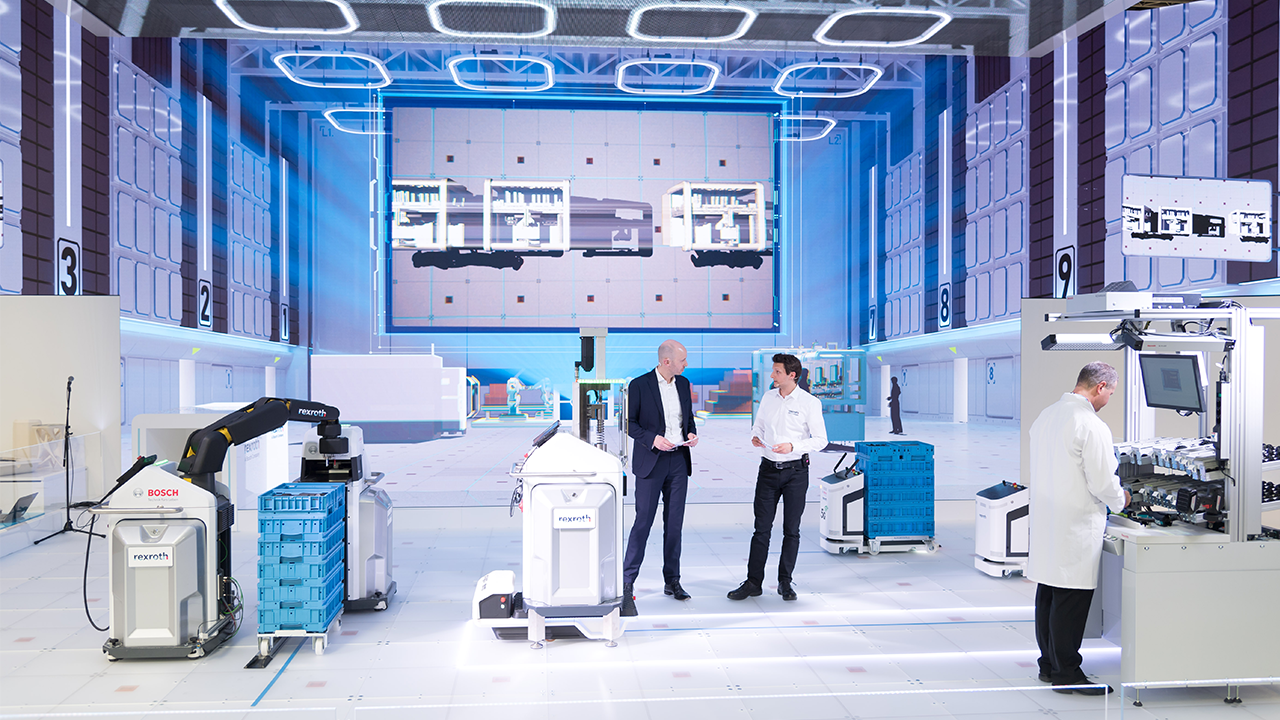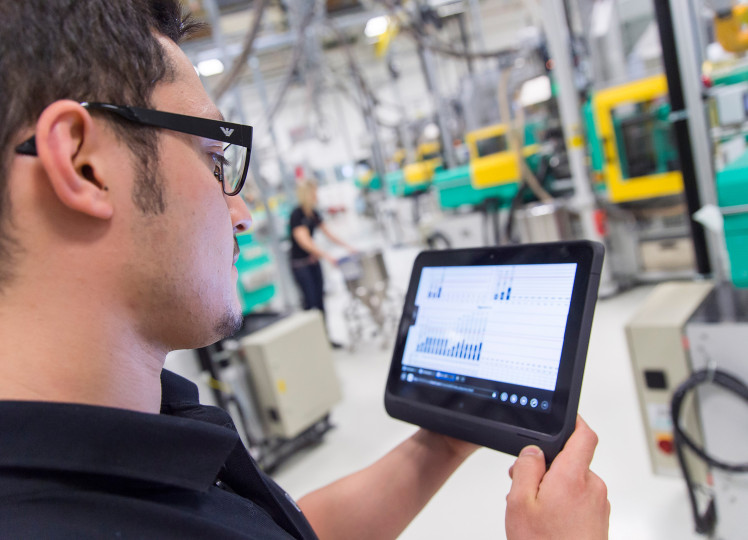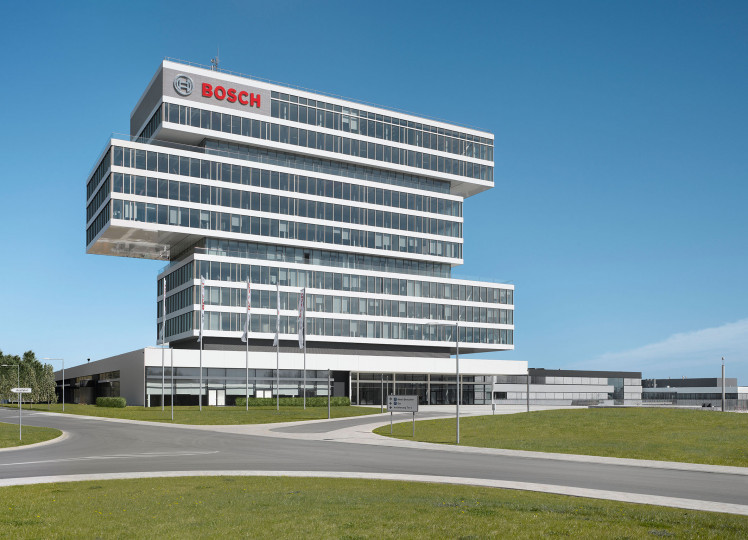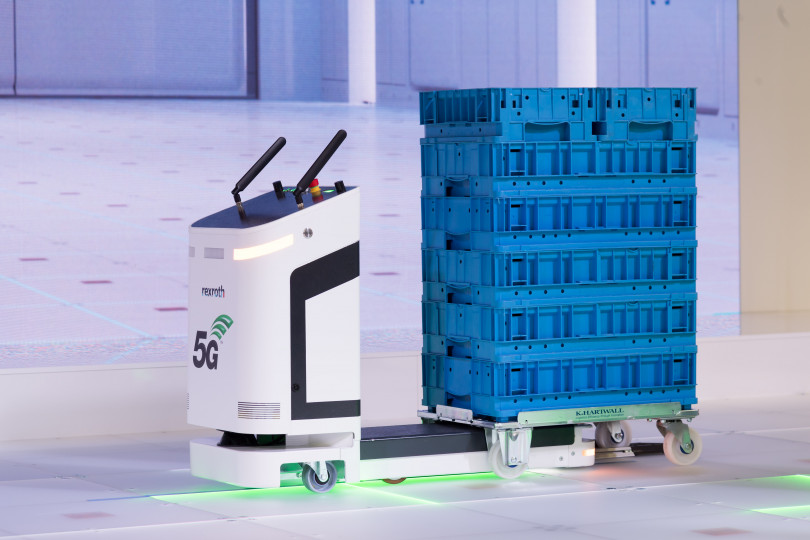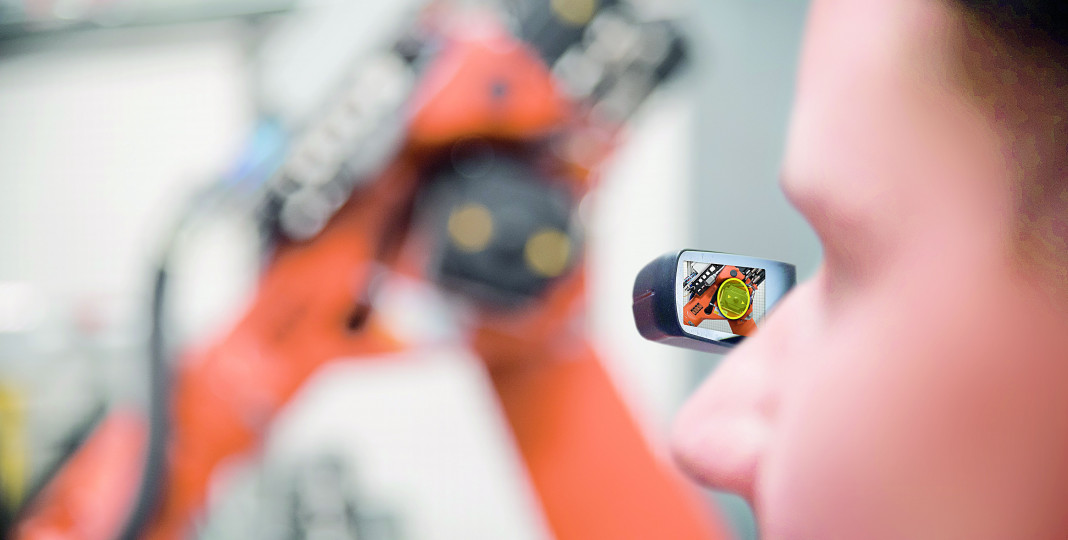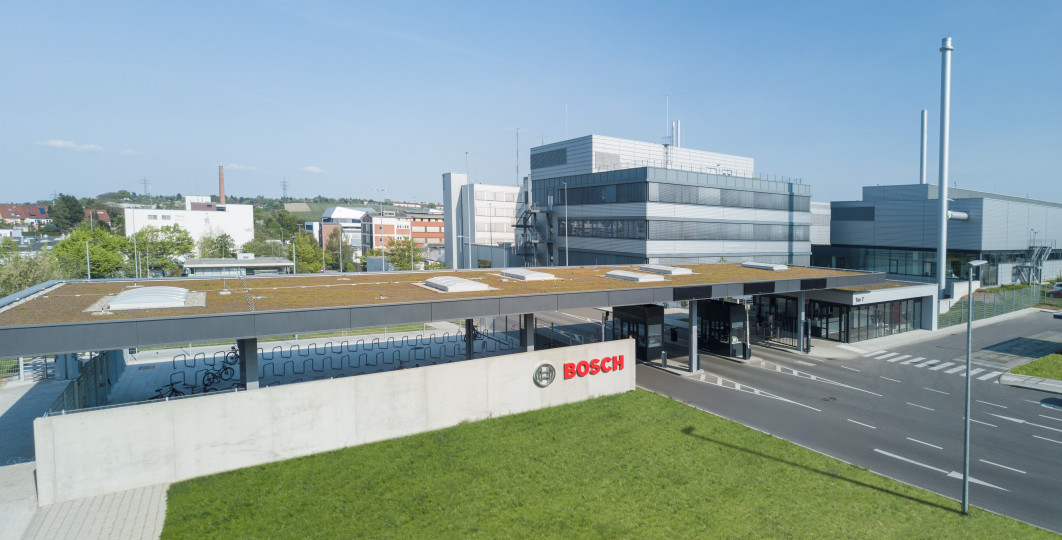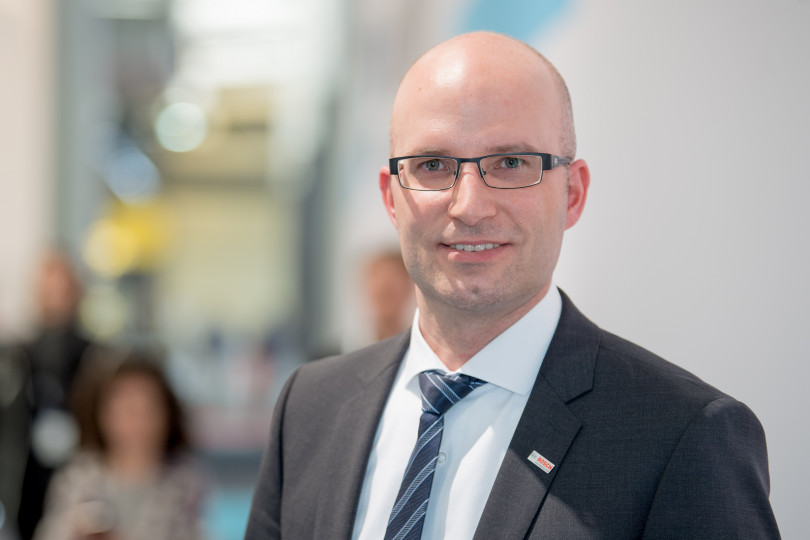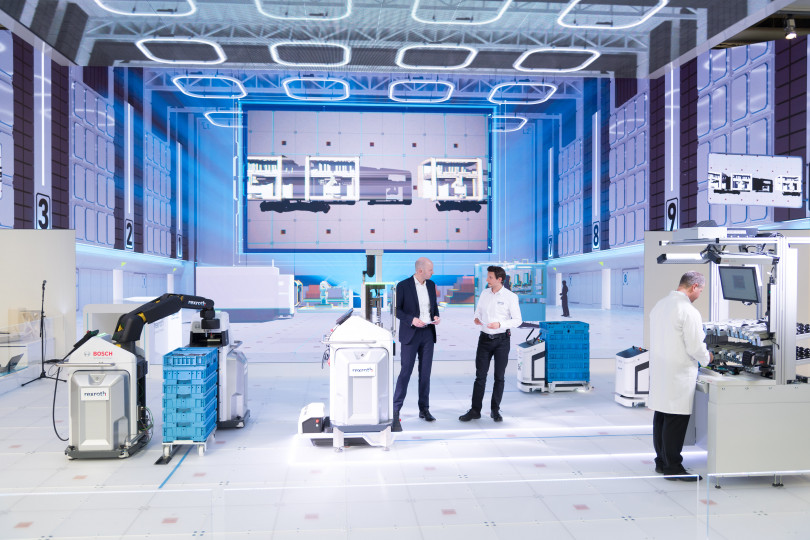Stuttgart, Germany – Bosch believes 5G local area networks are the way forward. The company has applied for 5G operating licenses for selected German locations. “As an IoT company, Bosch began researching into 5G early. The new communications standard is a key to automated and connected driving, and an essential element of the factory of the future,” says Dr. Michael Bolle, the Bosch Group CDO and CTO. Following licensing by the regulatory authorities, Bosch intends to set up these local 5G networks in collaboration with selected partners over the course of 2020 in order to better exploit the potential of Industry 4.0. Over the next few months, 5G trials will be conducted at Bosch plants and at its research campus in Renningen, in preparation for rollout in the company’s manufacturing operations.
5G campus networks for Bosch plants
The Bundesnetzagentur – the regulatory authority responsible for frequency allocation in Germany – recently changed its policy and now allows companies to obtain licenses for their private use. This will enable Bosch to set up its own 5G networks and thereby improve its competitiveness. “Private campus networks offer a maximum of security and independence. 5G speeds up industrial manufacturing processes. By establishing local 5G networks, we will be able to take a significant leap forward in our ambitions to create the factory of the future,” says Rolf Najork, the Bosch management board member responsible for industrial technology. Bosch has initially applied for 5G operating licenses for the lead plant for Industry 4.0 in Stuttgart-Feuerbach and the research campus in Renningen. “The pioneering work done by these selected locations will ultimately benefit the entire Bosch manufacturing network, with its roughly 280 plants worldwide,” Bolle says.
5G will play a central role in the factory of the future
“In our vision of the factory of the future, the only fixed elements are floors, walls, and ceilings. Everything else is movable and can be reconfigured at will,” Najork says. Examples include mobile robots, autonomous transportation vehicles, and new assistance systems such as data glasses, which provide associates with optimum support. An important requirement for such flexible systems is a powerful wireless infrastructure enabling efficient communication between human operators, machines, and other equipment. “This calls for a reliable, secure, and high-speed data transmission system with short response times – all of which is possible with 5G,” says Andreas Müller, who works for Bosch as a researcher and is the chairman of the international 5G Alliance for Connected Industries and Automation (5G-ACIA). The advantage of 5G is that it not only provides a means of efficiently connecting mobile devices and wireless sensors, but also provides the basis for entirely new system concepts. For instance, 5G enables a mobile robot to be controlled in real time using data stored in a local manufacturing cloud. This reduces costs, increases flexibility, and simplifies maintenance. It also optimizes operation of the machines. “If you walk into a factory today, you’ll see that almost every machine has an operating console with an emergency off switch. Someone has to press that button to bring the machine to a standstill. With 5G, the operator doesn’t need to be near the machine: an emergency stop and other functions can be executed using a mobile device. This makes the operator’s work easier, and also helps save costs,” Müller says.
5G improves security in production
Local 5G networks virtually eliminate dependence on third-party providers. By setting up and operating their own wireless networks, manufacturers can configure them to meet the often highly demanding requirements of industrial communication applications. This solution also gives them full control over relevant security concerns. For instance, if the public network is overloaded, local 5G networks permit factory operations to continue without losing control of the system. “Campus networks allow us to decide for ourselves what architecture and security features best suit our needs, and what equipment we will use to implement them. And we know who has access to specific components and data,” Müller says. This reduces business risks and preserves data sovereignty. Dedicated interfaces are used for connections to the internet and other public networks, and are continuously monitored.
Germany takes the lead in 5G
For the first time, the introduction of the new 5G standard gives companies in Germany the opportunity to set up and operate their own cellular local area networks. The German regulatory authorities have set aside the frequency band from 3,700 to 3,800 MHz for this purpose. Frequencies will be allocated according to demand, with preference given to Industry 4.0 or agricultural and forestry applications. Licenses will be granted for an initial period of ten years. The fee for each license is the sum of a basic EUR 1,000 fee, the allocated bandwidth (from at least 10 to a maximum of 100 megahertz), the number of years for which it is allocated, and the surface area (in square kilometers) to which the allocation applies (with a distinction being made between built-up areas and transport routes and other areas).
Zita Hella Varga
Phone: +36 70 667-6374
The Bosch Group is a leading global supplier of technology and services. It employs roughly 410,000 associates worldwide (as of December 31, 2018). The company generated sales of 78.5 billion euros in 2018. Its operations are divided into four business sectors: Mobility Solutions, Industrial Technology, Consumer Goods, and Energy and Building Technology. As a leading IoT company, Bosch offers innovative solutions for smart homes, smart cities, connected mobility, and connected manufacturing. It uses its expertise in sensor technology, software, and services, as well as its own IoT cloud, to offer its customers connected, cross-domain solutions from a single source. The Bosch Group’s strategic objective is to deliver innovations for a connected life. Bosch improves quality of life worldwide with products and services that are innovative and spark enthusiasm. In short, Bosch creates technology that is “Invented for life.” The Bosch Group comprises Robert Bosch GmbH and its roughly 460 subsidiary and regional companies in over 60 countries. Including sales and service partners, Bosch’s global manufacturing, engineering, and sales network covers nearly every country in the world. The basis for the company’s future growth is its innovative strength. At nearly 130 locations across the globe, Bosch employs some 68,700 associates in research and development.
The company was set up in Stuttgart in 1886 by Robert Bosch (1861-1942) as “Workshop for Precision Mechanics and Electrical Engineering.” The special ownership structure of Robert Bosch GmbH guarantees the entrepreneurial freedom of the Bosch Group, making it possible for the company to plan over the long term and to undertake significant upfront investments in the safeguarding of its future. Ninety-two percent of the share capital of Robert Bosch GmbH is held by Robert Bosch Stiftung GmbH, a charitable foundation. The majority of voting rights are held by Robert Bosch Industrietreuhand KG, an industrial trust. The entrepreneurial ownership functions are carried out by the trust. The remaining shares are held by the Bosch family and by Robert Bosch GmbH.
Additional information is available online at www.bosch.com, www.iot.bosch.com, www.bosch-press.com, www.twitter.com/BoschPresse

